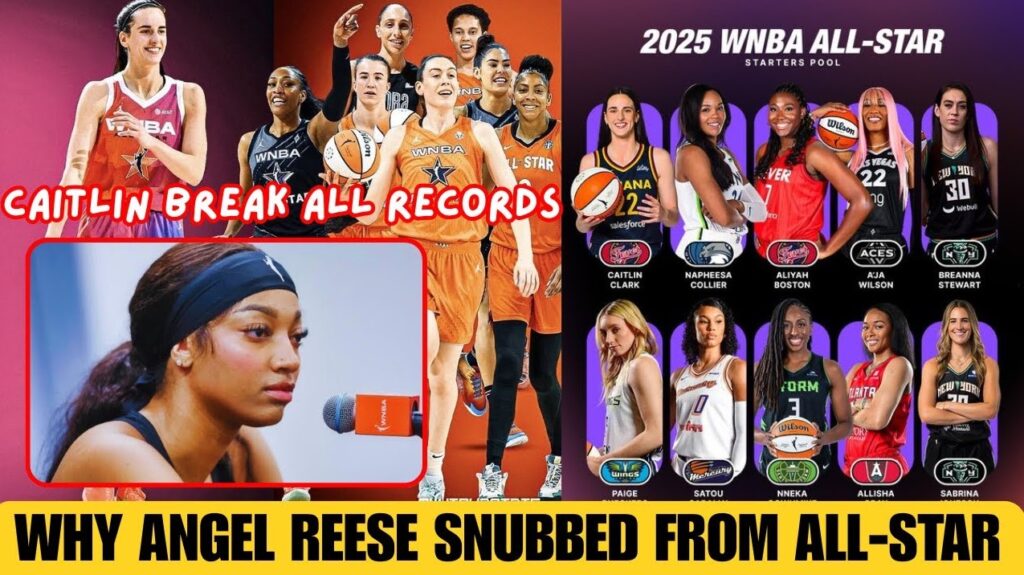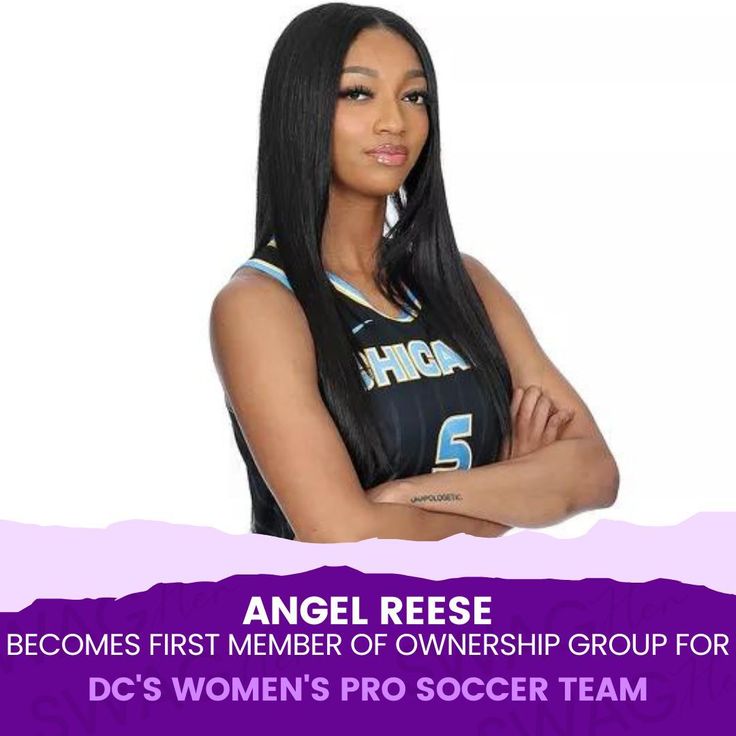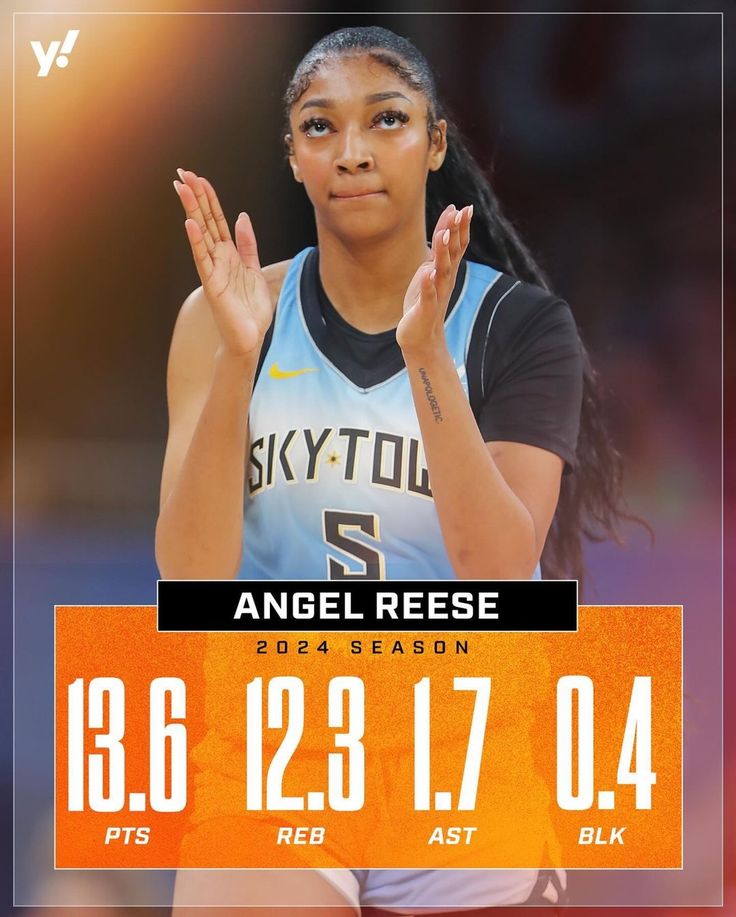The Rise and Fall of Angel Reese’s All-Star Appeal: What the 2025 Voting Results Really Reveal
The 2025 WNBA All-Star voting results have delivered a shocking reality check for Angel Reese, the Chicago Sky forward who once dominated headlines as the “rebound princess” during her remarkable rookie season alongside rival Caitlin Clark. While fans continue to show their support by placing her fifth among frontcourt players in fan voting with over 500,000 votes, the stark disconnect between public perception and professional recognition has become impossible to ignore, raising serious questions about her actual impact on the game versus her social media presence.

The most telling aspect of Reese’s current situation lies in the dramatic disparity between different voting constituencies, as she finished a respectable fifth in fan voting but plummeted to 12th place in both media and player voting categories, suggesting that those who watch and analyze basketball professionally have a fundamentally different assessment of her contributions than her passionate fanbase. This disconnect becomes even more pronounced when considering that Caitlin Clark, despite her own struggles with player votes, still managed to secure significantly higher rankings across all categories while maintaining her position as the league’s most marketable star.
Professional basketball players and media members, who evaluate talent based on advanced metrics, game impact, and overall basketball IQ rather than highlight reels and social media buzz, have consistently ranked Reese lower than her public profile would suggest she deserves. The fact that both groups independently placed her at 12th position indicates a consensus among basketball insiders that her on-court production, while impressive in certain statistical categories like rebounding, doesn’t translate to the kind of complete game impact that defines true All-Star caliber players in today’s WNBA landscape.
The Caitlin Clark rivalry, which propelled both players to unprecedented fame during their rookie season, may have inadvertently worked against Reese’s long-term perception as basketball professionals began to separate genuine elite talent from manufactured drama and social media engagement. While their college rivalry at LSU and Iowa created compelling narratives that drew millions of new fans to women’s basketball, the professional game demands a different level of excellence that goes beyond rebounding records and viral moments, requiring players to demonstrate consistent impact across multiple facets of the game including shooting efficiency, defensive versatility, and leadership qualities.

The voting results reveal a broader truth about the WNBA’s evolution as a league that increasingly values substance over style, with veterans and media members recognizing that true All-Star selections should reflect players who can genuinely compete at the highest level rather than those who simply generate the most buzz. Reese’s situation mirrors that of many players who achieve early fame through college success or social media presence but must prove their worth through sustained professional excellence, something that her rebounding prowess alone has not yet accomplished in the eyes of basketball purists.
Chicago Sky fans and Reese supporters will likely react with frustration and accusations of bias, particularly given her strong fan voting numbers that demonstrate her continued popularity among casual viewers who appreciate her personality and highlight-worthy plays. However, the professional basketball community’s assessment suggests that popularity and actual basketball impact remain two distinctly different metrics, with All-Star selections ideally reflecting the latter rather than the former, regardless of how disappointing this reality might be for her dedicated fanbase.
The implications of these voting results extend beyond individual recognition to broader questions about how the WNBA balances entertainment value with competitive integrity, as leagues must navigate between rewarding players who drive viewership and engagement versus those who demonstrate superior basketball skills. Reese’s case becomes a fascinating study in modern sports marketing, where social media influence and traditional basketball excellence don’t always align, forcing organizations to decide which metrics matter most when determining their premier showcase events and representative players.

Looking forward, Angel Reese faces a critical juncture in her career where she must decide whether to focus on expanding her basketball skill set to match her rebounding dominance or continue leveraging her personality and brand to maintain relevance despite professional skepticism. The 2025 All-Star voting results serve as a wake-up call that sustained success in professional basketball requires more than college achievements and social media savvy, demanding the kind of complete game development that transforms talented players into legitimate superstars who earn respect from peers and media alike.
The ultimate question remains whether Reese can use this voting disappointment as motivation to elevate her overall game or if she’ll continue to rely on her existing strengths while hoping that public perception eventually influences professional opinion. The answer will likely determine not only her future All-Star appearances but also her legacy as either a player who maximized her potential or one who remained forever defined by what might have been, making the coming seasons crucial for her basketball credibility and long-term career trajectory.